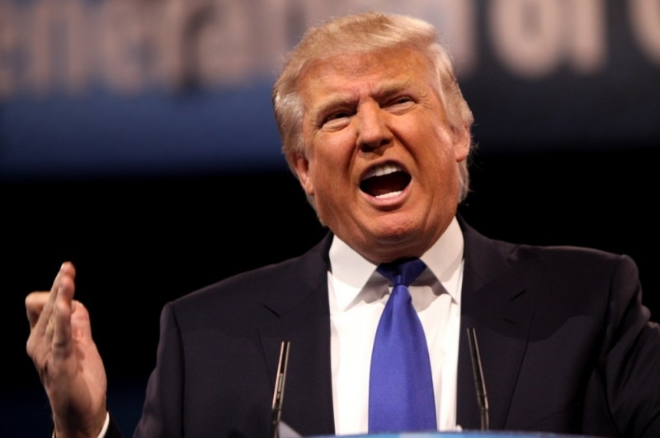 이미지 확대보기
이미지 확대보기According to industry sources on the 10th, Trump’s erratic tariff policies are causing significant concern among South Korean consumer goods exporters with substantial U.S. market exposure. Notable examples include Samyang Foods, which spearheaded the K-Food craze with its Buldak Bokkeum Myeon (Hot Chicken Flavor Ramen), and Daesang Corporation, the top exporter of kimchi to the U.S. Both companies produce domestically and export to the U.S., making them highly vulnerable to Trump’s tariff policies.
On April 8, the Ministry of Agriculture, Food and Rural Affairs held a meeting titled "K-Food Exporters’ Response to U.S. Reciprocal Tariffs" with 16 major exporters heavily reliant on the U.S., including CJ CheilJedang, Daesang Corporation, Pulmuone, Samyang Foods, and Binggrae. The consensus among participants was that a 25% tariff would make survival extremely difficult for food companies. The ministry is focusing on alleviating exporters’ burdens and strengthening risk management by offering additional funding for raw material purchases, expanding export vouchers and insurance for agricultural products, and supporting online and offline marketing strategies such as promotions through local distributors, participation in trade expos, and establishing Korean food sections in online malls.
The shadow of Trump’s tariffs also looms over K-Beauty and K-Fashion industries. Last year, South Korea ranked as the world’s top exporter of beauty products to the U.S., with exports totaling $1.701 billion (approximately KRW 2.5 trillion). Leading players LG Household & Health Care and Amorepacific are busy formulating countermeasures. LG Household & Health Care is pursuing simultaneous expansion of Amazon’s online and offline channels in light of global restructuring efforts that account for potential U.S. tariffs. Amorepacific is exploring strategies such as adjusting brand-specific pricing or managing promotional costs to mitigate impacts from changes in export pricing.
In K-Fashion, Hansae Co., Ltd., which derives 85% of its total exports from the U.S., plans to operate its factories flexibly. Currently, half of Hansae’s products are manufactured in Vietnam; however, with Vietnam facing a steep 46% tariff under Trump’s policies, alternative measures are necessary. Fortunately, Hansae operates factories in El Salvador and Guatemala that benefit from minimal tariffs (10%). In addition, the company plans to leverage these facilities while increasing production at Texollini—a U.S.-based factory it acquired last year.
An industry insider commented: “Since reciprocal tariffs are being applied globally rather than targeting specific sectors like steel or heavy equipment industries, it is still too early to predict their impact on consumer goods industries.” They added: “Given that Korean products are not significantly more expensive than competing goods from other countries, it remains uncertain whether this will lead to consumer attrition.”
Meanwhile, on April 9 (local time), President Trump posted on his social media platform Truth Social: “The United States will immediately increase tariffs on China to 125%.” He added: “Conversely, over 75 countries have contacted U.S. representatives to negotiate solutions regarding trade barriers, tariffs, currency manipulation, and non-tariff barriers without retaliating against the U.S. Based on these discussions, I will lower reciprocal tariffs to 10% during a 90-day grace period.”
Son Wontae (tellme@fntimes.com)
가장 핫한 경제 소식! 한국금융신문의 ‘추천뉴스’를 받아보세요~
데일리 금융경제뉴스 Copyright ⓒ 한국금융신문 & FNTIMES.com
저작권법에 의거 상업적 목적의 무단 전재, 복사, 배포 금지








![용산구 ‘나인원한남’ 88평, 9억 상승한 167억원에 거래 [일일 아파트 신고가]](https://cfnimage.commutil.kr/phpwas/restmb_setimgmake.php?pp=006&w=284&h=214&m=5&simg=2025071010042800278b372994c952115218260.jpg&nmt=18)



![한국 경제 돌파구 ‘결정적 시기’ 금융 선순환 가속·AI혁신 대응 [병오년을 열며]](https://cfnimage.commutil.kr/phpwas/restmb_setimgmake.php?pp=006&w=284&h=214&m=5&simg=2026010400055108216dd55077bc2118218214118.jpg&nmt=18)
![전광우 초대 금융위원장 “AI혁명 산업 대변혁기, '적극적 금융' 역할 중요” [2026 신년 인터뷰]](https://cfnimage.commutil.kr/phpwas/restmb_setimgmake.php?pp=006&w=284&h=214&m=5&simg=2026010400012607134dd55077bc2118218214118.jpg&nmt=18)
![용산 ‘한가람’ 25평, 9.6억 내린 16.2억원에 거래 [이 주의 하락아파트]](https://cfnimage.commutil.kr/phpwas/restmb_setimgmake.php?pp=006&w=284&h=214&m=5&simg=2023031509425002992b372994c951191922428.jpg&nmt=18)

![용산 ‘한가람’ 25평, 9.6억 내린 16.2억원에 거래 [이 주의 하락아파트]](https://cfnimage.commutil.kr/phpwas/restmb_setimgmake.php?pp=006&w=110&h=79&m=5&simg=2023031509425002992b372994c951191922428.jpg&nmt=18)


